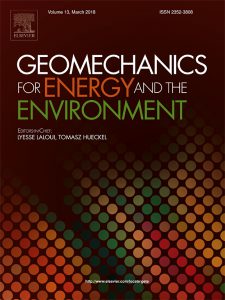2. Hydro-Mechanical Behaviour of Shales and Gas Shales
Lecturer
Alessio Ferrari
Content
Shales are among the most complex geomaterials in the Earth: their heterogeneity in terms of their composition, their burial history, the stratified structure characterized by bedding and fissility, and their intrinsic anisotropic behaviour are among the main factors responsible for this complexity. The relevance of shales to many geoenergy-related fields leads to the need for a profound understanding of their hydro-mechanical behaviour. Engineering applications such as the extraction of shale gas and shale oil, the sequestration of CO2, the development of Enhanced Geothermal Systems technology and the geological disposal of nuclear waste pose issues related to tunnel excavations, drilling operations, wellbore stability and safe sealing. In all these applications, changes are produced in the stresses and fluid pressures on the shales involved.
The course provides an insight on the hydro-mechanical behavior of shales and gas-shales under various conditions. Compared with conventional soil testing, shale testing requires addressing additional issues; because of their stress history and diagenesis, shales exhibit high yield stresses (frequently greater than 10 MPa) and are typically located at great depths. As a consequence, the mechanical testing of shales requires the ability to work in high-stress conditions and the determination of the hydro-mechanical parameters can be challenging. Modern techniques for quantifying shale response under coupled multiphysical conditions are also introduced. The role of the partial saturation in the mechanical behaviour is discussed as well as the effects of temperature variations. Rheological evidences are discussed in the light of constitutive modelling of geomaterials.
The main topics of the course are:
- Introduction to shales geomechanics;
- Laboratory testing of shales and gas shales;
- Determination of shale basic properties;
- Poromechanical behaviour of shales;
- Compression and consolidation of shales;
- Shear strength behaviour;
- Fluid retention characteristics;
- Hydro-mechanical behavior of partially saturated shales;
- Thermo-mechanical behavior of shales;
- Conclusions.



